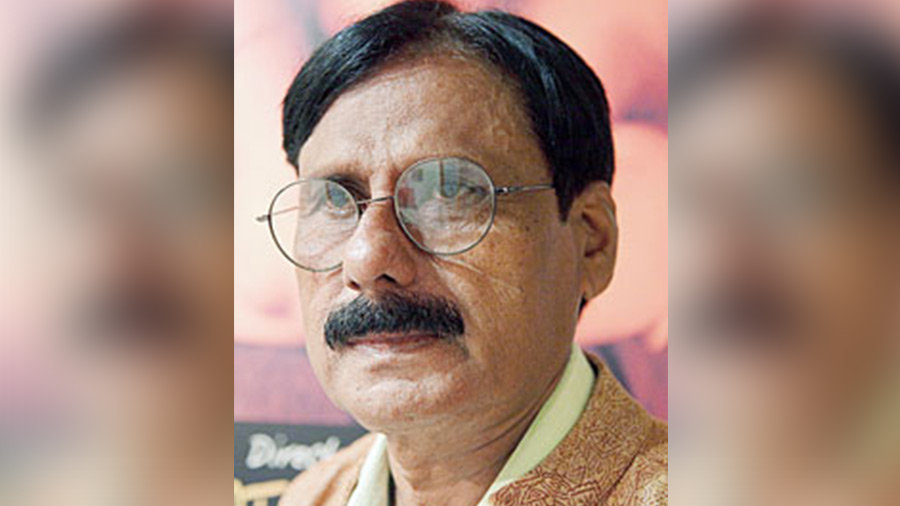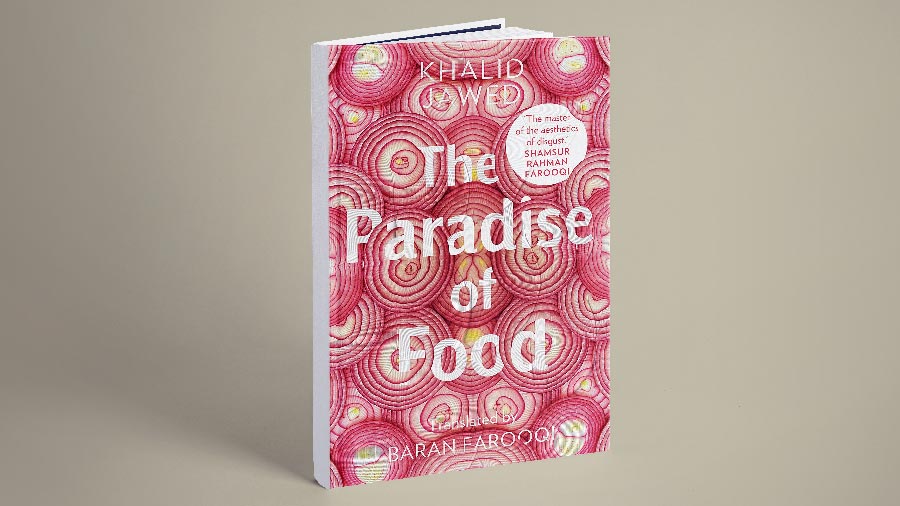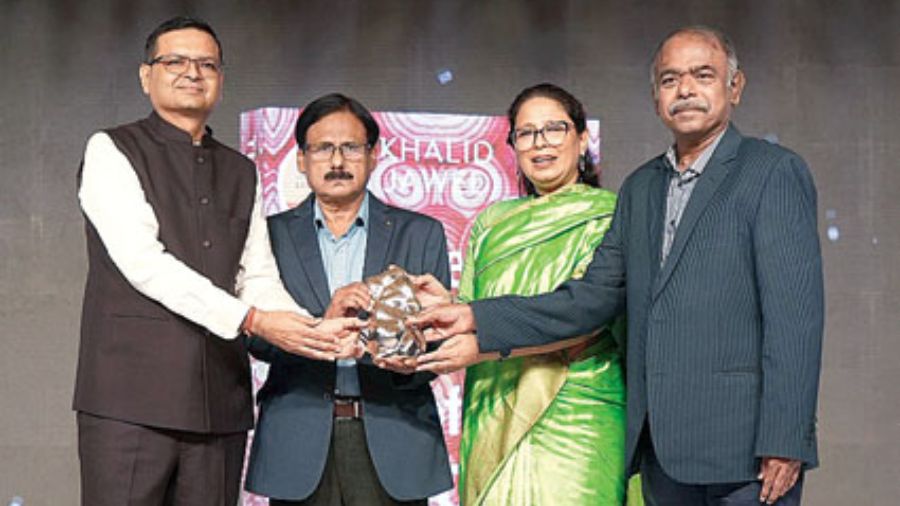We first met Khalid Jawed during the announcement of the Shortlist of The JCB Prize for Literature 2022 in the city in October. He was accompanied by Baran Farooqi, who has translated his 2014 Urdu novel Ne’mat Khana to The Paradise of Food in English that was declared the winner of the prize late last month. Among the contenders was also Geetanjali Shree who won the Booker Prize for her novel Tomb of Sand. The professor of Jamia Milia Islamia is unassuming and he might appear to be a man of few words but it’s just the contrary when he sits to talk about his books and beliefs.
Jawed, whose first writing was published when he was eight-years-old, looks at the characters and situations from a different perspective and this novel redefines kitchen and food and presents a true picture of a middle-class milieu. We talk to the author whose other notable works includes Aakhiri Dawat and Maut Ki Kitaab. Excerpts:
First of all, congratulations on the win. We are sure you are feeling elated and humbled. What’s the significance of the JCB Prize for Literature in your writing career?
It’s a big achievement and I say so because it has broadened the horizon of my readership. Urdu literary works have been translated in the past like other languages but getting translated to a popular language and then winning it at a prestigious award is quite an achievement. Baran Farooqi has taken my work to another world; it’s a kind of transportation to me; transportation of my creative world to another world.

For the English readers Ne’mat Khana and its intense plot with your powerful imagination is new. Tell us what triggered the novel.
The simple answer is the creative process. It can be triggered by many memories that might have been safe in my subconscious mind. In Ne’mat Khana it represents the collective unconscious memories of Muslim middle-class people. I believe that human emotions like greed, lust, possessiveness and others have a strong connection with food, and the connection is subtle. It can turn good into evil and evil into good. For instance, a food cooked with utmost love and affection when served touches the mind, body and soul and not just the taste buds, however when the same is cooked not out of love but anger, anguish and bedili (not from the heart) it has a different reaction on the person eating it. Because there has never been a novel that talks about food discourse in a different way, where food and kitchen is not just a pure entity but a battlefield, it makes my book unique.
How long did it take to complete the original book?
Creativity is like a pinching cataract, unless it’s matured it can’t be operated. So the story might have taken time to develop in my mind, I didn’t take much time to write it. I guess I finished the writing part in five-six months.
Your debut novel Maut Ki Kitaab followed the same tone — death and complexities and layering of human existence. What is it about these subjects that lures your pen?
You might call it an obsession but I am used to seeing the world differently. I don’t just see a painting hanging on a wall but the stain it has left on the wall and if a story can be found in the dust gathering around and behind it. Even my smallest stories and stanzas have this dimension. It’s all about the existential dimension. We have no control over our lives and as soon as we are born, death chases us. Whether it’s in Indian philosophy or Upanishads and even Buddha’s philosophy, you will find it everywhere. All stories of the world are woven around death and I even believe that art and literature’s motive is to win over death or to convert mortal into immortal. Death is a big motive to write. Horrible things when converted to arts can give birth to aesthetics, so I can say that I don’t write about death but its aesthetics, not alienation but its aesthetics. All these dimensions are my identity and the fundamentals of my writing.

Since philosophy has been your area of study and teaching for a long time, do you try to keep the philosophic interpretation of plots separate from a storyteller’s narrative? Or do you let them join and come out with a coherent narrative?
There’s a fundamental difference between philosophy and literature. The ideas of philosophy are abstract and universal ideas. Human feelings like love, hate, jealousy have no place in philosophy but in literature it is there in the form of impressions. My first story was published when I was eight. So, I was a literature scholar, and philosophy happened much later. A little influence might have come in my writing but none of my novels are philosophical in nature. My novels have no unique philosophy but there is a thinking conscious or thinking novel as it’s called.
A translated version is always said to lack the original flavour. How much of the originality Baran Farooqi could retain in The Paradise of Food. What is it about her work that convinced you to trust her with your book?
I think I am lucky that Baran Farooqi translated my book. If not for her my book wouldn’t have reached a wider readership and it would have never won a prestigious prize like JCB Literature. She has done a brilliant job with it. It’s not necessary that everything needs to be translated, a lot is discarded and that’s for the best. If it was not close to the novel it wouldn’t have got its due.
We see a couplet of Urdu poet Mir Taqi Mir in the first few pages of the book. Is he your favourite writer/poet?
Though Mir is my favourite, Mirza Ghalib has inspired me the most. In fact, in Maut Ki Kitaab, I have given Ghalib’s ashars (couplets). Also, I keep using different poets’ words in the books and it works like a key to my stories.
What’s next?
I have already written a novel and it should be ready for release soon.
